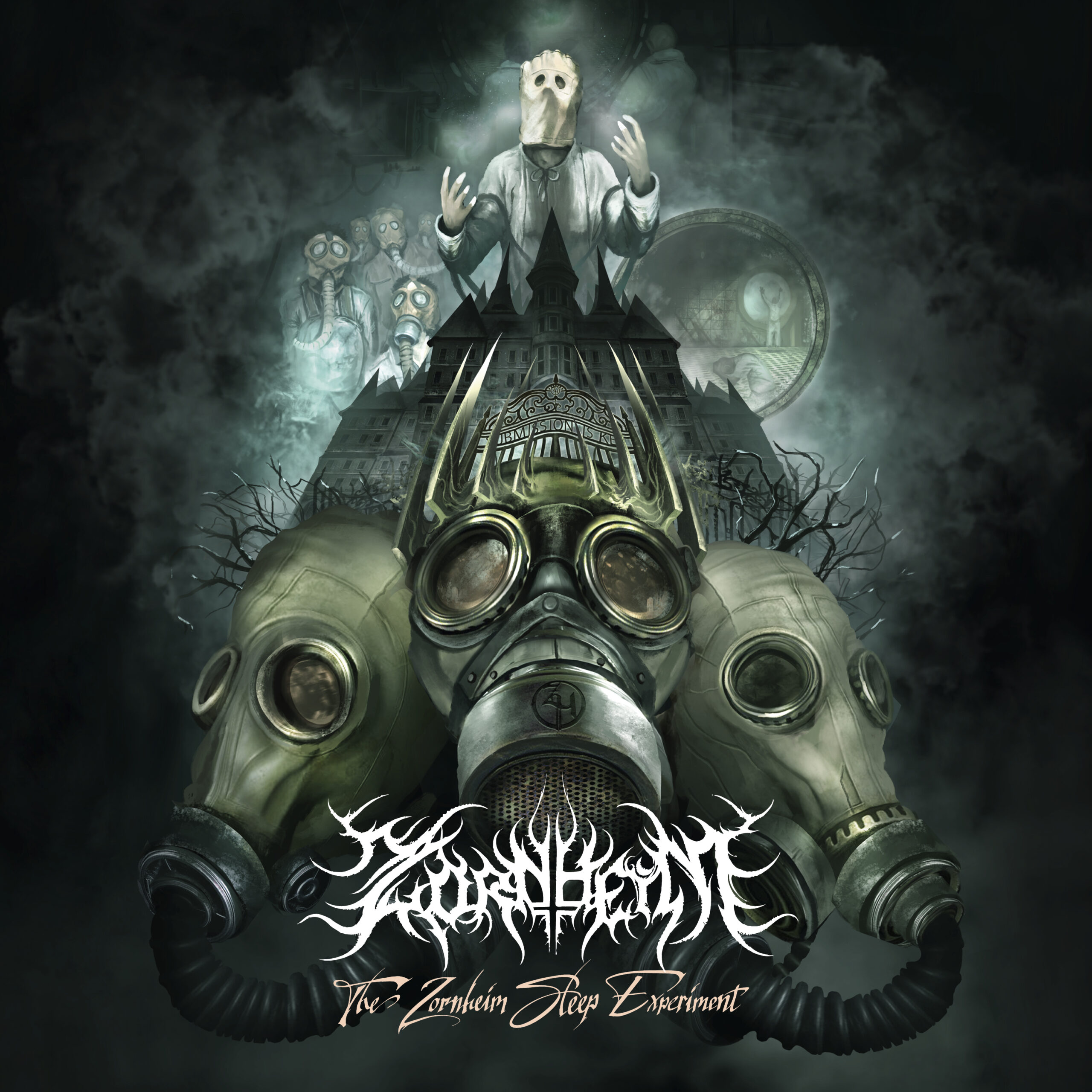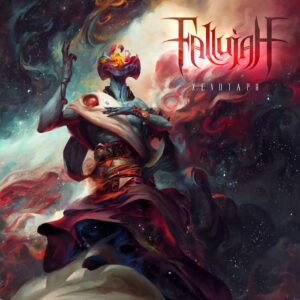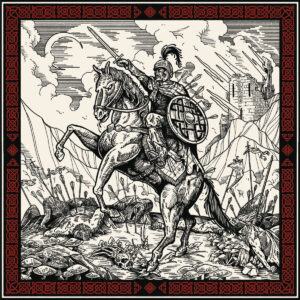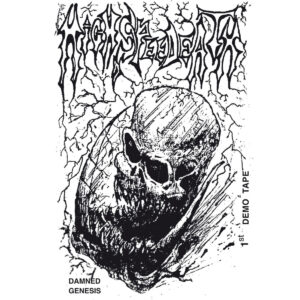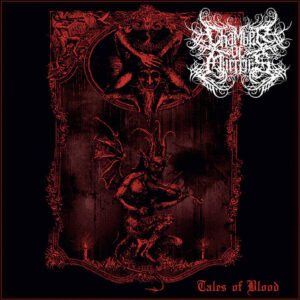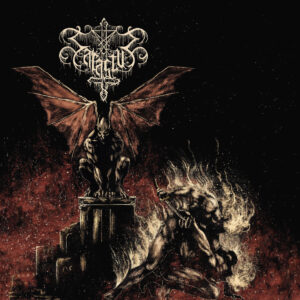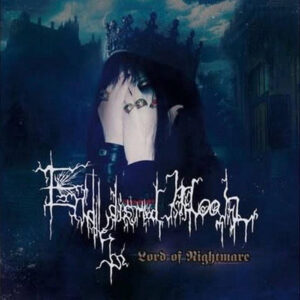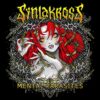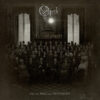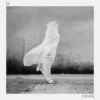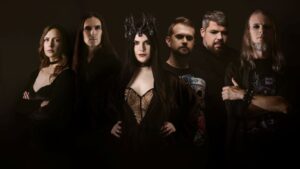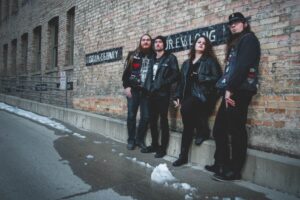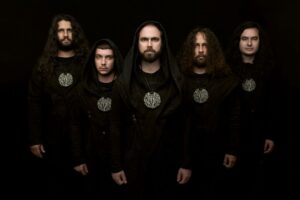Tomas Nilsson
Zornheym
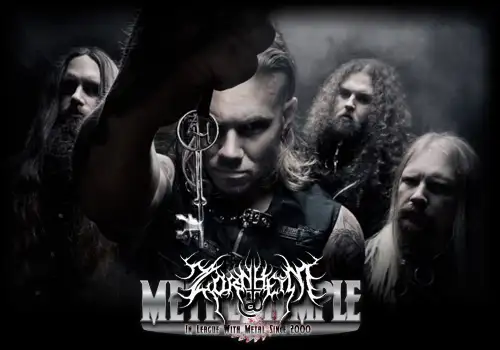
Hello and thank you for having me! I'm fine here, I am very happy that the "The Zornheim Sleep Experiment" finally is out and blown away about the good reviews coming our way. I'm also about to become a father for the second time, so a lot of stuff is going on at the moment!
I think that it is growing to become a real juggernaut. When you think about it, there are not that many bands that release their own graphic novel along with their debut or have a choir and string orchestra playing on it. We do have so many ideas on how to make our concept even better and mind blowing. We have maybe realized about 10% of our ideas. When I started this band back in 2014, I didn't expect us to be able to do all this cool stuff this early on in our career.
No, the story was planned out 1-2 years prior to the outbreak of covid. The cover art was also made before it all started. So we felt a bit weird when we started seeing people with gas masks showing up at the supermarket, when I knew that I had an album cover at home packed with it that I wanted to release. The only thing that really happened for us was that we were given more time in the studio, so we decided to record a bonus track.
I try to view Zornheym as a TV-series. "Where Hatred Dwells and Darkness Reigns" is the pilot episode where you get introduced to a bunch of different characters and get a general vibe of what Zornheym is about. The two albums are tied together by the first graphic novel in the last chapter where Doctor Bettelheim takes the nameless inmate of the song Hestia, down to deeper levels of Zornheim and informs her that she is to be a part of a sleep experiment.
Musically they are tied together with the outro of Hestia as well. The outro of Hestia is the soundtrack to when Bettelheim takes the nameless inmate through the narrow corridors of Zornheim. The first riff of "Corpus Vile" is also the acoustic piece but it is played on electric guitar with tremolo picking instead. The nameless inmate is a part of the sleep experiment and is also tied together with Angelica from "Whom the Night Brings…", the inmate that suffers from sleep paralysis.
The title is very direct and has no deeper symbolism behind it. The whole album is about a sleep experiment that's conducted at the Zornheim asylum for the criminally insane. Dr Bettelheim, the director of the asylum, wants to try and learn why we spend ⅓ of our life sleeping. Is it simply because the body needs to repair itself and the brain to process all the information we have experienced during the day? Or is there a more profound meaning behind it?
Yes, this is definitely a concept album. It is the story of the sleep experiment performed at Zornheim and the whole album follows the experiment from start to finish. You can also read the different notes from the sessions throughout the experiment in the booklet as well as Dr Bettelheim's state of intent. The main influence for this album is the urban legend about the "Russian sleep experiment". I thought that was a twisted concept that suited well to bring into the Zornheim universe.
The album is written from two perspectives. One is from the two doctors monitoring the experiment from the outside at "the Observatory" where they can see what's going on inside the experiment room, "the Chamber", through a big circular window, "the eye". They also have some microphones set up and can communicate with the subjects via an intercom system. Between the two doctors, Dr Bettelheim and Dr Gutzmann, is an interesting chemistry with Dr Bettelheim being the "evil" one and Dr Gutzmann more being interested in science with a more humane touch. So the antagonist is for sure Dr Bettelheim.
The other perspective of the album is from inside "the Chamber" and is viewed from different subjects. This perspective jumps from subject to subject though, so you don't really get to follow a certain protagonist like in a book, because the perspective shifts from song to song. This is something that makes the story a bit unusual, but that is something I did intentionally. The listener is supposed to be someone who beholds the experiment, as a guard or something like that. The group that you feel sorry for are the subjects, since they are forced to endure the sick experiment of Dr Bettelheim, so they can be viewed as the protagonists.
When you play this kind of music, I think the topic should reflect on the general feeling of it. Humanity is an endless source of inspiration when it comes to madness and evil. So, the moral of the concept is to showcase the utter darkness of humanity.
King Diamond is for sure a huge inspiration and Carach Angren is a great band. I think this album became a lot more cinematic since we could play the string quartet in the studio and give us more control of their sound. When we got the green light for that I added some extra strings here and there on the album as a last thing. I also think that we have used more percussion and stuff like that to build a more eerie atmosphere. The expansion of the choir played a huge role as well. To let the choir, sing more words and be a part of the story telling instead of just using them for "aa" and "mm". I'm very happy with what we achieved on this album and with a bigger budget we could really expand more.
When we were recording the debut album, we discovered what an incredible voice Bendler has and how many different voices he can produce. That is something that we have experimented more with on this album. Scucca was also very interested in getting more orchestral instruments on this album which led to us using woodwinds for the first time. We also used an old folk tune for the chorus on "Slumber Comes in Time", which made us explore some folk territory, something Zornheym hasn't done before. This was also Steve Joakim's first album with Zornheym, so the drum approach was a bit different than on the first album.
The band was still forming as we were making the first album. So, on this second album we kind of worked out a work process on how to make albums. Me and Scucca also had learned a lot from composing the orchestral parts for the first album, which really helped us improve everything on this album. We also knew that we wanted to be able to control the string sound this time around, so this time we decided to record the strings at Wing Studios, last time they were recorded at an old asylum.
I think our music is driven by the guitars and I think that differs us from a lot of other symphonic bands. I usually begin with writing the song with a melody or a guitar riff and then I record that together with a drum machine. Then I start building an atmosphere with different instruments and samples. When I hear the melodies, I usually hear arrangements in my head on how I want to structure everything around it. It takes a lot of hours to do this, but it is always worth it and really rewarding afterwards when you hear the final result. Once the first foundation of the riff and some small orchestral fragments are there, I send the result to Bendler and let him try out some different vocal patterns and ideas.
I try to keep the music very basic in the beginning, so Bendler has a lot of space to experiment with the vocals. When we are happy with the result he sends it back to me and I start tweaking the guitar riff and add more orchestral elements and/or tweak the already existing parts. Once my basic arrangements are done, I start to work more in depth with them together with Scucca. Once we are satisfied, I hand it to Steve and he works out some drums based on my demo ideas. Then we tweak the music a little bit more, so it works even better with the drums. Lastly, we put on the correct words and Scucca writes down notations for the classical musicians and then the track is ready to be recorded.
I guess you could say that there is a thin line between classical and cinematics on this record. On the other hand, cinematic composers take a lot of inspiration from classical composers, just like we do. I like to write classical influenced guitar leads with a dramatic path, just like Yngwie does or like Helloween did on the "Keeper…" albums.
I had a storyline planned out for the whole album. When I started writing the music, I already knew what dramatic curve the album would follow. I also wanted the music to reflect the inmates about to drift off to sleep and then they are getting to inhale the gas that makes them wide awake. So, I had a clear vision from the start and then I made sure to follow it through.
I have never worked on something as big and grandiose as Zornheym. The main thing that I have learned is to identify what's driving the song and then build around that and arrange things in such a manner that it doesn't get buried in the mix. You can have several things playing at the same time, but you must arrange it, so they aren't fighting for attention at the same frequency.
Bendler did a massive leap forward on this album and it's for sure his best performance to date. Bendler is doing all the voices on the album except the chants part, they are done by Scucca, and I do the voice of Dr Bettelheim when he is speaking and Scucca does one spoken part as well that can be heard in epilogue. Bendler and I really wanted to take the band vocally to the next level so in the composing process we added a lot of interesting vocal parts. I think this is also something that adds a lot to the storytelling element of the album. We already have ideas on how to expand on this even further for our next album.
I felt so proud when we were mixing this album. It took 4 years from writing to release. We aren't backed up by a big label like Nuclear Blast or Century Media that is giving us a budget to go to Prague and record with an orchestra, still we managed to make it sound like it. I don't think everyone who hears this album will
think about what an accomplishment just that part is. I really feel that we managed to make a great soundtrack to the world of Zornheim and still pack them as great standalone songs. I don't think there is a single boring second on the album. If you listen to the album in headphones you can almost hear the gates of the asylum shutting behind you when you push play.
We did one show last year and one this year. There won't most likely be any shows for the rest of the year here. Not because of the pandemic but because I am becoming a father again any day now. Once the baby is born and we, me and my fiance, have adjusted to it, we will start playing again. We have some shows in the pipeline for spring next year. That's perfect for us because then the album has been out for a while and people have listened to it a bit more and know the songs better.
Thank you for an interesting interview, Lior, it was a pleasure! Thank you readers, if you made it all the way down here. See you on the road 2021!
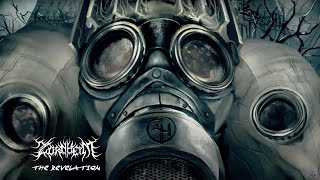
More results...
